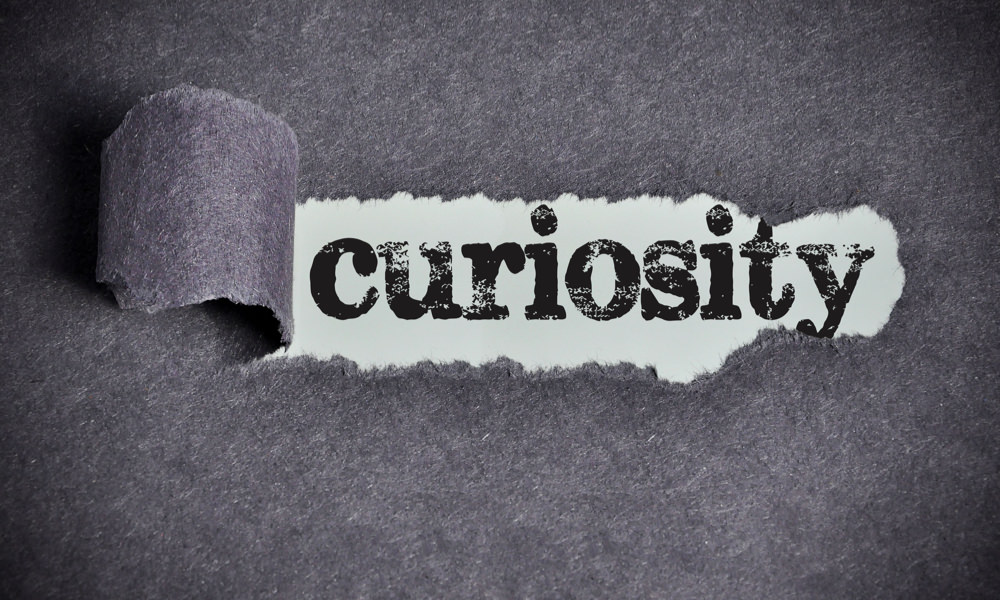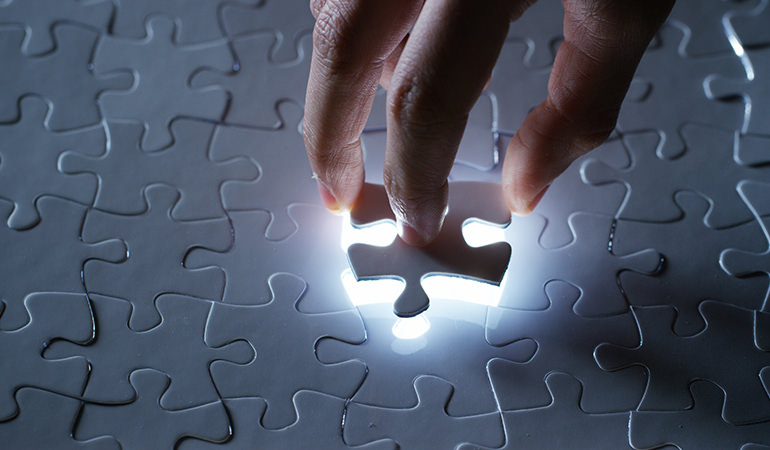“You cannot just give someone a creativity injection. You have to create an environment for curiosity and a way to encourage people and get the best out of them.” Ken Robinson
We are called The Listening Partnership for a very good reason. The art of listening is crucial to being a great executive coach. At the same time, the best listeners are naturally curious. Here’s why endless curiosity and excellent listening skills are so important in an executive coaching context.

First, what is curiosity?
Curiosity is simply a genuine spirit of open enquiry, a keen desire to learn. Moreover, right at the centre of curiosity is the willingness to discover new things. As coaches, this intention sits at the core of everything we do for people like you. Genuine curiosity, the real deal, conveys an authentic, highly creative, non-judgemental interest into whatever is going on for a coach and their client. When curiosity is present, awareness develops at multiple useful levels. Awareness leads to positive change and that, in turn, is what a lot of the work we do is about.
In addition, as experienced executive coaches, curiosity plays a huge part. It begins with our attitude to our practice, exploring ourselves, our successes, failures and experiences, nurturing the ongoing learning that keeps us compassionate and always challenges us. Continuous learning delivers more than additional knowledge, however. It also means you tend to become more interesting as a person. In fact, more curious about the people and the world around you.
Curiosity helps coaches avoid becoming fused into a particular set of behaviours, keeping us flexible and nimble. It helps us avoid being drawn too deeply into the detailed content of what is being discussed. It can hold the broader perspective while still fostering empathy and sensitivity. Curiosity takes the stance of the beginner’s mind. It gives permission not to know. It’s not about being an expert executive coach; it is more about the ability to hold and contain the free exploration of the session, safely in the here and now. This potent climate of discovery becomes part of every meeting, consistently delivering more than the sum of its parts.

Taking a consciously curious stance
As coaches, it is our responsibility to create a context where curiosity and creativity thrive. It is our job to help our clients be the best they can be, and it does not just happen like magic. Curiosity needs to be woven intentionally into the mix. That is why we take a curious stance, offering our clients a sense of spacious enquiry. This, in turn, helps to support the right context for exploration and learning to take place.
There are limits. By asking interrogating questions, or pushing boundaries in a way that can be construed as intrusive, it is easy to evoke resistance. It is a subtle balancing act, and we take great care to listen and be curious when something like that ever happens. As a client, your feedback is vital.
The sheer power of asking questions

It takes applied wisdom and plenty of practise in the art and timing of asking the kind of questions that generate a spirit of genuine curiosity. Along with great questioning, the quality of our listening skills makes a significant difference. The depth of our interest, the way we listen to our clients, is crucial. Listening to what is being said as well as what is not being said.
Real curiosity gives our clients a vital opportunity to reflect. Because it is such an open approach it lets you set aside your busy life for a time and be still. Let yourself smell the coffee. It is about taking time out to become more aware. Also, you are able to make sense of your thoughts and feelings in your meetings with your coach and beyond.
Your input as a client
All this is not something that can be done in a rush. We respect your ability to come up with creative solutions at your own pace. When we all slow down enough to let curiosity follow its own route, it often takes unexpected turns. It can generate a climate of for new ideas and innovation, and it’s a vital part of the way our clients access and mine their own resources.
As Walt Disney said: “We keep moving forward, opening new doors, and doing new things, because we’re curious and curiosity keeps leading us down new paths.”
It isn’t an executive coach’s job to set the agenda
The best executive coaches don’t set an agenda or pre-set the outcome, nor do they steer their clients towards foregone conclusions. When a coach is overly focused on objectives, other more important factors might not surface, never enter their awareness, and the sessions will fast get out of balance. If you come across a coach who does that, they’re not doing you any favours. The best coaches are constantly wondering what will happen next, being as open to you, the client, as much as possible so they don’t miss out on serendipitous, surprising and unexpected insights.
The pleasure of active curiosity
It’s human nature to become more engaged when curiosity is aroused and get great pleasure out of the experience. As coaches following the scent of our interest, finding new perspectives, exploring insights with you and the hard ground of experience is a real gift, something we gladly share with our clients. That’s what it’s all about.
If you would like to discuss how to develop more curiosity and creativity in your working life, to the benefit of yourself and everyone you work with, do get in touch.
About us:
We create the space for leaders to step back, think clearly, and navigate complexity with confidence. By sharpening the narrative that drives decisions, teams, and performance, we help leaders move forward with clarity and impact. Our approach blends deep listening, incisive challenge, and commercial focus—strengthening leadership at every level, from business transformation to boardroom decisions.
“We share resources that help coaches deepen their practice and expand their impact. The articles on this site are designed to spark fresh thinking, offer practical tools, and support the continuous growth of coaches at every stage. “
Jude Elliman
Founder
Our Core Approach:
We work with leaders to sharpen their thinking, strengthen their leadership, and navigate complexity with confidence. Our approach is built around three core areas:
Narrative Coaching – Working with the stories that shape leadership, teams, and organisations.
Commercial Focus – Cutting through complexity to drive clear, strategic decisions.
Challenge & Space – Asking the right questions while creating the space to reflect and grow.
Through this, we help leaders drive transformation, align teams, and make high-stakes decisions with clarity and impact.
